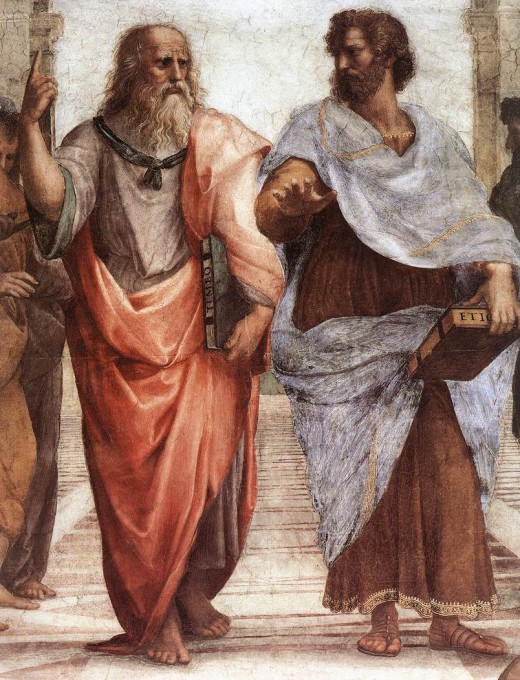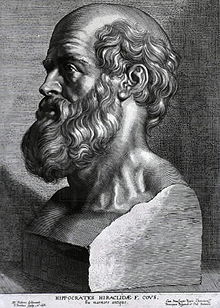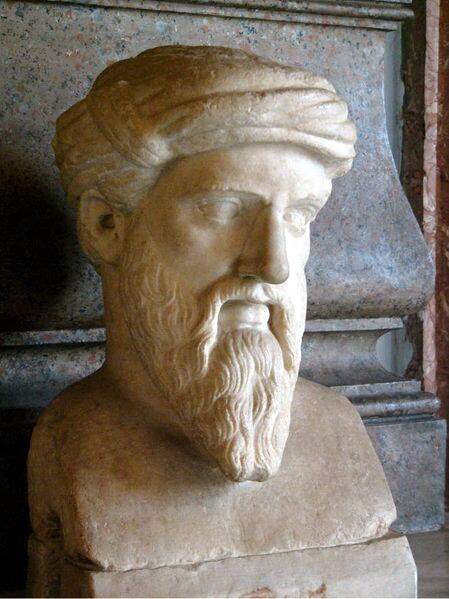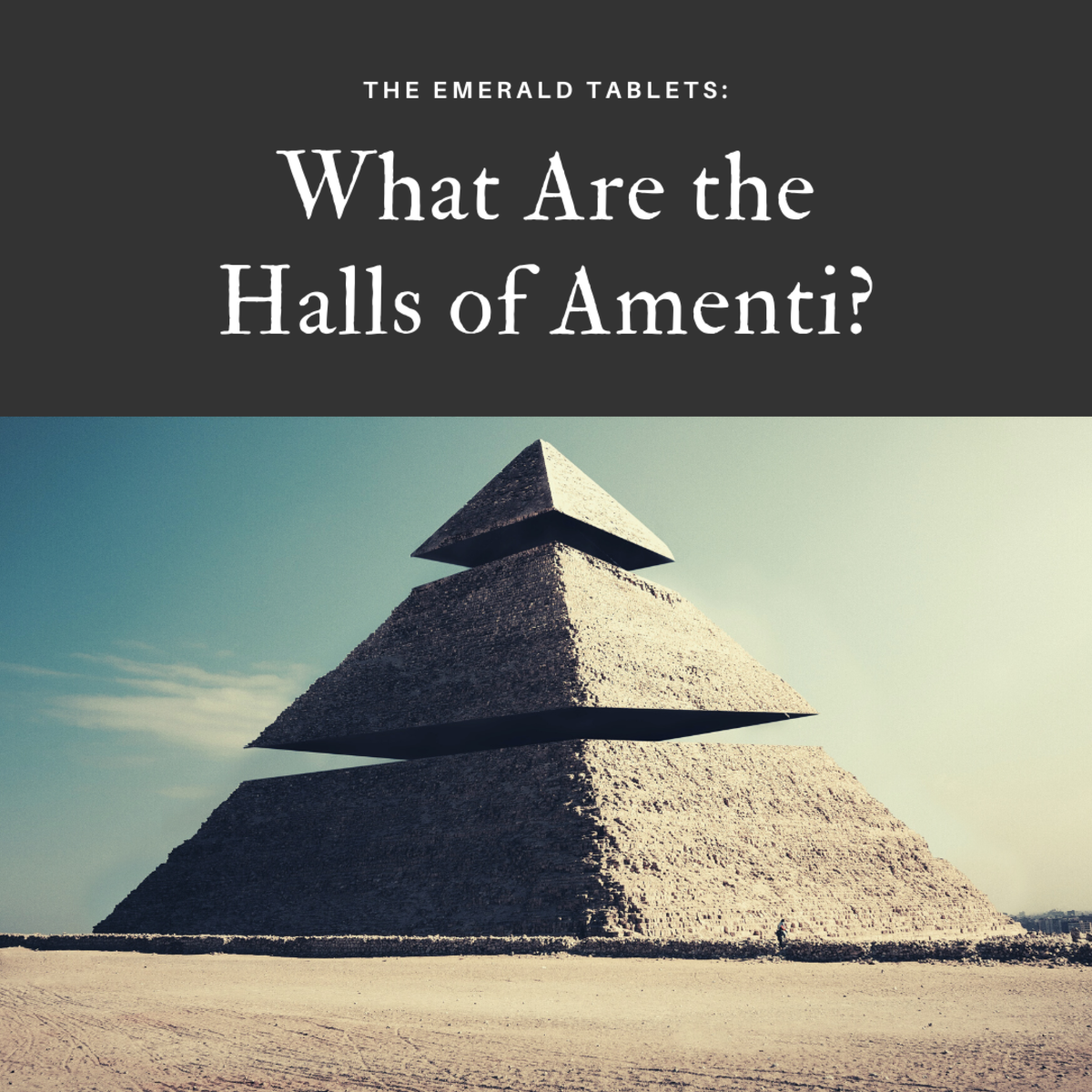My Esoteric: An Introduction
Raphael's "The School of Athens" - 1509

In The Beginning
So, here it begins.
The year is 1957, I was in fifth grade in Whittier, CA. My family was not particularly religious but my mother nevertheless hauled me off to church and Sunday School almost every week; I believe we were Methodists. I remember being an alter boy, snuffing out candles. Also flashing across my memory are images of Sunday School where I suppose I learned about the Bible, Christ, and Christianity.
In those days, I read a lot and have always been curious and wanted to learn new things (Happily, that desire hasn't left me and the advent of CDs and DVDs have made it easier.) One book I read, for obvious reasons, was the Bible; from beginning to end, Old and New. To say the least, this was eye-opening for a 10 year old! But, not in the way my pastors liked. What I discovered troubled me very deeply.
While I was being taught in Suday School that God was good and beneficent, the Bible presented an entirely different picture. The God of the Bible was capricious, venial, jealous, and hurtful. I know I asked about this at Sunday School but whatever answer they may have given me was obviously not satisfactory. For, by my eleventh birthday I was absolutely convinced that the God of the Bible was not my God! Couldn't be my God. My God, without knowing the form that it would ultimately take, was a truly Good God and not the mean (the term I actually used with my friend at the time) entity pictured throughout the Bible.
Thus began my search for a satisfactory answer to one of the most perplexing questions known to humankind ... what is God. Later, that expanded to include the meaning and purpose of life, where humans fit into the scheme of things, and why humans act the way they do.
The Next 54 Years
DURING THE NEXT 56 YEARS, I just turned 66, I spent living life. I have had the good fortune of living what I consider a very eventful life that has left me with a wealth of impressions from a multitude of perspectives.
My life has gone from some pretty deep personal lows to some very high self-actualization. I have been divorced twice but happily married now. I have been bankrupt twice but comfortably well-off now. I was a functioning alcoholic for 33 years but now have 13 years of sobriety. (Yep, that's right, if you do the math, it started when I was 17 and I knew it when I was 18 but didn't really give a damn.) Obviously, I won't be running for any office. I fought in Vietnam where I flew helicopters; frequently hung-over ... that was fun! I almost volunteered for the 1st Iraq war (I was sober then and have been since) but thought better of it; but nevertheless spent the time of active hostilities working in the Pentagon for the Army, while keeping an eye on my civil service job with the Air Force. Fortune also smiled on me regarding employment, having never really been unemployed since high school, although I have drawn an unemployment check or two.
You can see other things that kept me occupied in my profile but, compliments of the Army and Air Force, I was able to meet and talk with folks from Indonesia, Thailand, Vietnam (of course), England, Canada, Germany, Italy, Poland (during Vietnam and in my stint with the Air Force), and Slovakia. The high points during my various jobs were being able to work at the Air Staff and Office of the Secretary of Defense level in the Department of Defense. There, as an analyst, I was able interact, on one rare project, with staff from the President's National Security Council, the Secretary of State, and the Joint Chiefs of Staff. The work product from my interactions with all of these diverse offices did influence, to a small degree, financial policy at fairly high levels and, from a program I developed and managed for the Air Force called AFTOC from 1999 - 2007, continues to do so today. Now, I am well aware that is not a big whoopee to the reader, but it sure puts a smile of the face of this ol' former drunk. :-)
Why my life didn't end in mediocrity or worse, I haven't a clue; it should have because I certainly tried hard enough to make it so. But providence, karma, or whatever smiled on me and allowed me to become, in some small way, the poster child of self-actualization. As a result, my hope is that I gained insight and a perspective that many of my fellow humans don't achieve by being able to see the world from both sides of a once self-destructive life style.
At the very least, I certainly gained an understanding of how people really operated in Washington, and it wasn't pretty. Pretty or not though, you got to see up close and personal what motivated the movers and shakers and their minions, at least in the Defense Department and those interacting with us. What an education. I mentioned that program I ran near the end of my career earlier, not only because I am hugely proud of it, but because of what it taught me in terms of the machinations I had to go through to bring it to fruition and the philosophical compromises and arguments needed. It knocked years off of my life, sheesh. But, it also made me think about people, about what motivates them, about what their character is in a much more personal way than I ever had before.
To conclude this history, I started my current business in 2000, retired from the Army in 2007, and did the same with my civil service job in 2008. I am starting this project plus a new business in Smart technology in 2010. I need to hurry up however as I only have about 20 years left based on when my relatives have decided they have had enough of this life.
I hope all of the above gives me a good starting point for my written investigation of the world around me. Only time will tell.
Philosophers Corner
Natural Philosophers All





Method
I have thought a lot about that question, but, alas, written little. I joined the Hub to correct this oversight. In trying to find an answer (and satisfy my curiosity about the world around me), I read, listened, and watched material on a wide variety of subjects dealing with history, science, religion, and philosophy. Even though it wasn't my intent, many of the things I learned ended up being pieces to the puzzle I was trying to solve.
By no means have I become an expert in any of these subjects, but I hope I have at least come to some level of understanding of the underlying concepts. . Inspiration, to the extent I am able to attain it, is embodied in the iconic picture above of Plato walking with his student Aristotle. While Plato looked solely to the sky and beyond for his answers to the purpose and meaning of life, Aristotle looked forward, more down to earth and tried to be more pragmatic. I believe both are correct.
Both founders of what became known as Philosophy were well versed in most areas of knowledge of the time and what they produced was a synthesis of that knowledge. As I listened to the products of subsequent philosophers they all incorporated new knowledge to shape and redefine the basic tenets set down by the likes of Plato and Aristotle as well as the likes of Hippocrates and Pythagoras It is clear that advances in science today are going to help resolve some philosophical differences of yesterday.
For example, not all that long ago René Descartes did not agree at all with Isaac Newton's theory of gravity. Descartes refused to believe that gravity can be a force that "acts at a distance", which is clearly implied by Newton's theory. "Acting at a distance" is an impossibility in Descartes empiricist way of thinking. Unfortunately for Descartes at the time, the proof was in the pudding; Newton's theory worked. You could make predictions based on his gravitational theory and test them successfully. Descartes was defeated.
Enter Einstein and the General Theory of Relativity. Using information I recently learned regarding Relativity, I can now make a case that Descartes may be right after all! Although more research into this is definitely called for, it appears that what Einstein discovered is Gravity is not a Force after all. Instead, it is a feature (the warping) of Space-TIme, which is central to his General Theory of Relativity. Gravity is the "warp" in Space-Time caused by the presence of "stuff", i.e., mass and energy. (I hope your head isn't hurting like mine is now.) Since gravity is not a force, then one could posit that it does not work at a distance as Descartes insisted. Descartes is resurrected.
What has all of this mumbo-jumbo have to do with my method toward finding my answer to the meaning of life? Everything. Starting with Pythagoras, I intend to move forward exploring the various aspects of men's, and more recently women's, philosophical thoughts and how they bear on persuading my thoughts in one direction or another and why. Included in this Cornucopia of Learned Men and Women are today's cutting-edge Natural Philosophers (you know them as scientists; so did I until about a year ago) because, to me, they hold the key to some of the hardest questions I have such as rationalizing "free" will.
This project of mine is intended to be a long, laborious process as such a process deserves. I hope these hubs will, above all, be interesting to you and at the same time generate questions, comments, and feedback that will make me think and reinterpret. What I think I understand at present has been developed internally. Putting it down in writing, trying to justify it in writing to a critical audience will serve to clarify and strengthen it.
EUREKA! I Think
JANUARY 29, 2011 - The solution to my long quest appears to be a hand!
I wasn't intending to bring this up at this point but I need a place to record my thoughts until I can more fully explore them. So here they will be.
I might have mentioned this in other hubs, but my search for an understanding of what god is ended about 20 years ago when I listened to a lecture about the philosopher Benedict (Baruch) Spinoza (1632- 1677). Among his accomplishments, he established a system of ethics on how to obtain a truly happy life and he produced a proof, using the same methods found in geometric proofs, that god existed. Now, to be clear, this is not the same God that the Jews or Christians of the day believed in. But that is what he called his "Ultimate One Cause" in order to avoid the real rocks and real arrows with which the Christians would have pummeled and pierced his body. His Jewish faith did excommunicate him.
Spinoza's idea of the "One Cause" fit with what I had developed in my mind of god or spirit is much like the glove produced at the O.J. Simpson trial, it did't quite fit but it was very close. How he arrived at his conclusions made perfect sense to me and gave me a much more solid understanding of why I came to believe the way I did.
Even knowing this, I had many questions that went unanswered. I understood that god was the Universe, the Cosmos, and that all there is, be it material things or immaterial things, are apart of god. But, that is where it stopped. I didn't know what to make of that, didn't know where to run with that, didn't really know what that meant.
The other day, on a drive to Hot Springs, AR, I was listening to another lecture from "The Teaching Company" from a series titled "The Meaning of Life: Perspectives from the World's Great Intellectual Traditions"given by Professor Jay L. Garfied. One of his lectures concerned Aristotle's views on Life and another was on the Bhagavad-Gïtã from the Epic and sacred book Mahãbhãrata from India. Here, the deity Krishna reveals himself as the Cosmos and goes on to explain much the same thing that Spinoza did some 1600 years later. Once again, it was made clear that all things, material and immaterial, are part of the Universe, part of the Cosmos, part of the deity Krishna. I went on to say, however, that while all things are a part of Krishna, as a gearshift is part of a car, Krishna is not part of everything, the car is not part of the gearshift. This is a subtle twist and not the same idea the Christians have of the relationship between God and humans where neither is a part of the other.
Where Spinoza more or less left the relationship between the One Cause and the material and immaterial things that flow from it alone, the Bhagavad-Gïtã doesn't. That is where I need more delightful study.
Aristotle's views on life, virtue, happiness, social need, and the Highest Good links with and adds another dimension to the individualism seen in the Bhagavad-Gïtã by considering the need for society and social friendship. Between the lectures begins what I love most, an integration of ideas to produce a richer understanding of the meaning of life rather than the stovepipe, rigid, and often depressing understandings we often see today.
Possible Answer To Free Will

This content is accurate and true to the best of the author’s knowledge and is not meant to substitute for formal and individualized advice from a qualified professional.
© 2010 Scott Belford









